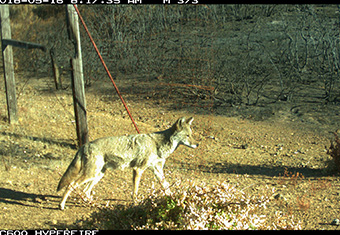

Abstract
Anthropogenic global change continues to create novel challenges for ecosystems globally. Megafires, or fires that far exceed the severity and size of historic wildfires, are powerful examples of this phenomenon. California has become emblematic of the potential consequences megafire may induce on local ecosystems as the scale and frequency of megafire continues to escalate within the state. Despite the current trend, there is a rich history of fire being used to steward several of California’s fire prone ecosystems, and prescribed burning may potentially be one of the best tools to mitigate future megafires in certain ecosystems. In light of ongoing global change pressures, the California Department of Fish and Wildlife (CDFW) has elected to revise the California Wildlife Action Plan for a set of at-risk species to address the risk of megafire. Historic data on species occurrence can be leveraged to inform the development of these management plans to consider the consequences of changing fire regimes. By curating a broad network of biodiversity monitoring data, I will analyze how the distributions of Californian mammal and bird species assemblages change following megafire and identify species that may potentially be vulnerable to future megafire events. Specifically, I propose to quantify the impact of fire severity on species occupancy and community richness and to quantify the relationship between megafire and incidents of human-wildlife conflict in surrounding areas. Through this work, I will identify landscape features and management practices that enhance the resilience of at-risk species and ecological communities to future megafires and advise how to mitigate human-wildlife conflict following these major perturbations. I will work directly with my CDFW partner to incorporate these findings into CDFW’s revised management protocols to guide more effective management as fire intensity and severity continue to increase. Understanding the regional implications of severe wildfire on wildlife species will continue to be essential for developing effective conservation strategies in a changing world, and the insight we gain from this work will inform management of similar fire-prone systems globally that are impacted by megafire and other climatic disturbances.
www.kendall-calhoun.com
